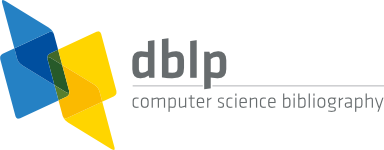| 2022 | |
| [1] | , "Reporting Consent, Anonymity and Confidentiality Procedures Adopted in Empirical Studies Using Human Participants", In e-Informatica Software Engineering Journal, vol. 16, no. 1, pp. 220109, 2022.
DOI: 10.37190/e-Inf220109. Download article (PDF)Get article BibTeX file |
Authors
Deepika Badampudi, Farnaz Fotrousi, Bruno Cartaxo, Muhammad Usman
Abstract
Background: Empirical studies involving human participants need to follow procedures to avoid causing harm to the subjects. However, it is not always clear how researchers should report these procedures.
Aim: This study investigates how researchers report ethical issues in the software engineering journal publications, particularly informed consent, confidentiality, and anonymity.
Method: We conducted a literature review to understand the reporting of ethical issues in software engineering journals. In addition, in a workshop, we discussed the importance of reporting the different ethical issues.
Results: The results indicate that 49 out of 95 studies reported some ethical issues. Only six studies discussed all three ethical issues. The subjects were mainly informed about the study purpose and procedure. There are limited discussions on how the subjects were informed about the risks involved in the study. Studies reported on how authors ensured confidentiality have also discussed anonymity in most cases. The results of the workshop discussion indicate that reporting ethical issues is important to improve the reliability of the research results. We propose a checklist based on the literature review, which we validated through a workshop.
Conclusion: The checklist proposed in this paper is a step towards enhancing ethical reporting in software engineering research.
Keywords
research ethics, informed consent, confidentiality, anonymity
References
1. J. Singer and N.G. Vinson, “Ethical issues in empirical studies of software engineering,” IEEE Transactions on Software Engineering , Vol. 28, No. 12, 2002, pp. 1171–1180.
2. J.E. Sieber, “Protecting research subjects, employees and researchers: Implications for software engineering,” Empirical Software Engineering , Vol. 6, No. 4, 2001, pp. 329–341.
3. M. Jefford and R. Moore, “Improvement of informed consent and the quality of consent documents,” The lancet oncology , Vol. 9, No. 5, 2008, pp. 485–493.
4. D. Badampudi, “Reporting ethics considerations in software engineering publications,” in 2017 ACM/IEEE International Symposium on Empirical Software Engineering and Measurement (ESEM) . IEEE, 2017, pp. 205–210.
5. T. Coffelt, “Confidentiality and anonymity of participants,” 2017.
6. B. Kitchenham, L. Madeyski, and P. Brereton, “Problems with statistical practice in human-centric software engineering experiments,” in Proceedings of the evaluation and assessment on software engineering , 2019, pp. 134–143.
7. M. Jørgensen, T. Dybå, K. Liestøl, and D.I. Sjøberg, “Incorrect results in software engineering experiments: How to improve research practices,” Journal of Systems and Software , Vol. 116, 2016, pp. 133–145.
8. R. Rosnow and R. Rosenthal, People studying people: Artifacts and ethics in behavioral research . WH Freeman, 1997.
9. V. Prasad and C. Grady, “The misguided ethics of crossover trials,” Contemporary clinical trials , Vol. 37, No. 2, 2014, pp. 167–169.
10. S. Vegas, C. Apa, and N. Juristo, “Crossover designs in software engineering experiments: Benefits and perils,” IEEE Transactions on Software Engineering , Vol. 42, No. 2, 2015, pp. 120–135.
11. K. Xivuri and H. Twinomurinzi, “A systematic review of fairness in artificial intelligence algorithms,” in Responsible AI and Analytics for an Ethical and Inclusive Digitized Society , D. Dennehy, A. Griva, N. Pouloudi, Y.K. Dwivedi, I. Pappas et al., Eds. Cham: Springer International Publishing, 2021, pp. 271–284.
12. K. Boyd, “Ethical sensitivity in machine learning development,” in Conference Companion Publication of the 2020 on Computer Supported Cooperative Work and Social Computing , CSCW ’20 Companion. New York, NY, USA: Association for Computing Machinery, 2020, p. 87–92. [Online]. https://doi.org/10.1145/3406865.3418359
13. B. Zhang, M. Anderljung, L. Kahn, N. Dreksler, M.C. Horowitz et al., “Ethics and governance of artificial intelligence: Evidence from a survey of machine learning researchers,” J. Artif. Int. Res. , Vol. 71, Sep. 2021, p. 591–666. [Online]. https://doi.org/10.1613/jair.1.12895
14. D. Spinellis, “The social responsibility of software development,” IEEE Software , Vol. 34, No. 2, 2017, pp. 4–6.
15. F.F.S. Flores and S.R.L.d. Meira, “Houston, we may have a problem: Results of an exploratory inquiry on software developers’ knowledge about codes of ethics,” in 2019 IEEE International Systems Conference (SysCon) , 2019, pp. 1–6.
16. A. McNamara, J. Smith, and E. Murphy-Hill, “Does acm’s code of ethics change ethical decision making in software development?” in Proceedings of the 2018 26th ACM Joint Meeting on European Software Engineering Conference and Symposium on the Foundations of Software Engineering , ESEC/FSE 2018. New York, NY, USA: Association for Computing Machinery, 2018, p. 729–733. [Online]. https://doi.org/10.1145/3236024.3264833
17. T. Ahmed and A. Srivastava, “Understanding and evaluating the behavior of technical users. a study of developer interaction at stackoverflow,” Human-centric Computing and Information Sciences , Vol. 7, No. 1, 2017, pp. 1–18.
18. N.G. Vinson and J. Singer, “A practical guide to ethical research involving humans,” in Guide to Advanced Empirical Software Engineering . Springer, 2008, pp. 229–256.
19. N.M. Minhas, “Authorship ethics: an overview of research on the state of practice,” in 2021 IEEE/ACM 2nd International Workshop on Ethics in Software Engineering Research and Practice (SEthics) , 2021, pp. 31–38.
20. N.E. Gold and J. Krinke, “Ethical mining: A case study on msr mining challenges,” in Proceedings of the 17th International Conference on Mining Software Repositories , MSR ’20. New York, NY, USA: Association for Computing Machinery, 2020, p. 265–276. [Online]. https://doi.org/10.1145/3379597.3387462
21. P. Strandberg, “Ethical interviews in software engineering,” in 2019 ACM/IEEE International Symposium on Empirical Software Engineering and Measurement (ESEM) . Los Alamitos, CA, USA: IEEE Computer Society, sep 2019, pp. 1–11. [Online]. https://doi.ieeecomputersociety.org/10.1109/ESEM.2019.8870192
22. S. Baltes and S. Diehl, “Worse than spam: Issues in sampling software developers,” in Proceedings of the 10th ACM/IEEE international symposium on empirical software engineering and measurement , 2016, pp. 1–6.
23. A.J. Viera, J.M. Garrett et al., “Understanding interobserver agreement: the kappa statistic,” Fam med , Vol. 37, No. 5, 2005, pp. 360–363.
24. S. Elo and H. Kyngäs, “The qualitative content analysis process,” Journal of advanced nursing , Vol. 62, No. 1, 2008, pp. 107–115.
25. R. Ørngreen and K. Levinsen, “Workshops as a research methodology.” Electronic Journal of E-learning , Vol. 15, No. 1, 2017, pp. 70–81.
26. K. Thoring, R. Mueller, and P. Badke-Schaub, “Workshops as a research method: Guidelines for designing and evaluating artifacts through workshops,” in Proceedings of the 53rd Hawaii International Conference on System Sciences , 2020.
27. I. Krumpal, “Determinants of social desirability bias in sensitive surveys: a literature review,” Quality & quantity , Vol. 47, No. 4, 2013, pp. 2025–2047.
28. A.D. Ong and D.J. Weiss, “The impact of anonymity on responses to sensitive questions 1,” Journal of Applied Social Psychology , Vol. 30, No. 8, 2000, pp. 1691–1708.
29. T. Hall and V. Flynn, “Ethical issues in software engineering research: a survey of current practice,” Empirical Software Engineering , Vol. 6, No. 4, 2001, pp. 305–317.
30. K. Petersen and C. Gencel, “Worldviews, research methods, and their relationship to validity in empirical software engineering research,” in 2013 joint conference of the 23rd international workshop on software measurement and the 8th international conference on software process and product measurement . IEEE, 2013, pp. 81–89.
31. F.G. Miller and D.L. Rosenstein, “Reporting of ethical issues in publications of medical research,” The Lancet , Vol. 360, No. 9342, 2002, pp. 1326–1328.
32. W.M. Association et al., “World medical association declaration of helsinki: ethical principles for medical research involving human subjects,” Jama , Vol. 310, No. 20, 2013, pp. 2191–2194.








